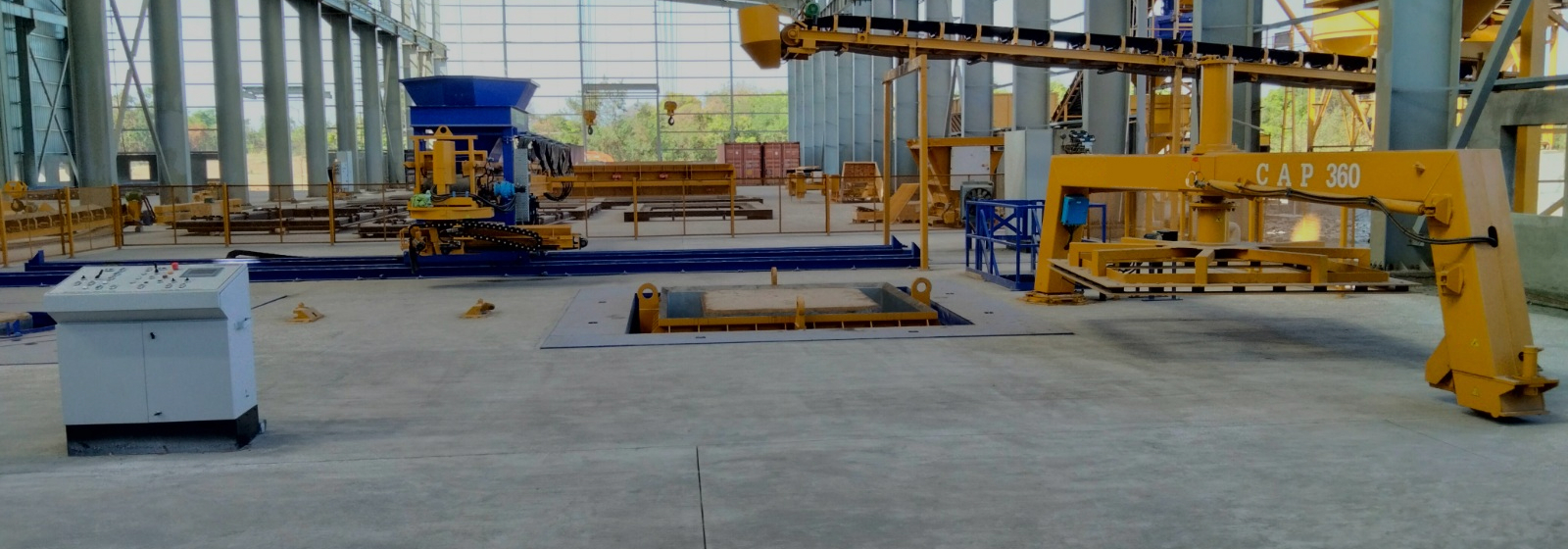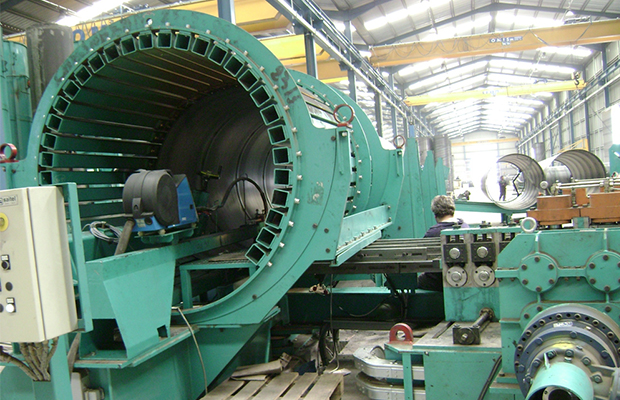
Power plants stand as the core of modern civilization, transforming raw energy sources into electricity that drives industries and homes. Within these complex facilities, infrastructure plays a critical role in maintaining operational efficiency and safety. Among the essential components, concrete pipes provide structural and functional support for systems like fluid transport, drainage and ash handling.
At the foundation of this infrastructure are concrete pipe making machines-advanced systems engineered to produce consistent, high-strength pipes tailored for power plant demands. This article explores how concrete pipe machinery contributes directly to power plant operations, focusing on its functionality, structural benefits and role in reinforcing the long-term durability of these critical facilities.

Concrete Pipe Applications in Power Plants
In power plants, concrete pipes fulfill multiple roles that ensure the safe and efficient movement of fluids and byproducts across vast areas. These pipes are integral to core systems, including:
Cooling Water Systems
Cooling systems in thermal and nuclear power plants rely heavily on a reliable network of pipelines. Whether in once-through or recirculating systems, large volumes of water move through pipes under high temperature and pressure. Concrete Pipe Machinery, offer the structural integrity and heat resistance required to manage these operations effectively.
Stormwater and Surface Drainage
Power plant sites often span extensive land areas, requiring robust drainage networks to manage stormwater and prevent flooding. Concrete pipes efficiently carry high water volumes without deformation, erosion or collapse, making them an ideal choice for stormwater management across energy facilities.
Fly Ash and Bottom Ash Handling
In coal-fired plants, ash byproducts must be safely transported from combustion zones to containment or processing areas. Ash slurry systems use durable pipelines that can resist abrasion and chemical exposure. Concrete pipes provide the durability and structural performance necessary for such demanding tasks.
Subgrade Drainage Beneath Facilities
Drainage beneath control rooms, turbine halls and transformers helps preserve the integrity of foundations. Concrete pipes installed below ground support consistent drainage while withstanding soil pressure and heavy surface loads.
With each of these systems, concrete pipe solutions enable seamless, long-lasting performance within the highly regulated and stress-intensive environment of a power plant.
The Strategic Role of Concrete Pipe Machines in Power Plant Infrastructure
Concrete pipe machines function as the production backbone for infrastructure projects within power plants. These machines operate with precision, enabling the manufacturing of pipes that meet exacting specifications for strength, diameter and composition.
Key Contributions of Concrete Pipe Machinery:
- Dimensional Precision: Every pipe must align with engineering drawings. These machines consistently produce accurate dimensions with minimal deviation.
- Volume and Speed: Power plant projects often require large quantities of pipe within tight construction timelines. High-output pipe machines meet these demands effectively.
- Material Efficiency: Machines regulate cement and aggregate ratios to ensure each pipe maintains structural integrity while minimizing material waste.
- Customization Capability: Using interchangeable concrete pipe moulds, the machine can adjust quickly to produce different pipe sizes and reinforcement types.
By incorporating such equipment into project workflows, power plant contractors ensure that structural requirements, timelines and safety standards are consistently met.
Enhancing Infrastructure Reliability through Quality Pipe Production
Power plants depend on uninterrupted operation. Any failure in the underlying infrastructure-especially fluid handling systems-can result in downtime, safety risks or costly repairs. Using high-quality concrete pipe making machines, operators ensure the production of consistent, defect-free pipes that stand up to operational stresses.
Infrastructure Benefits:
- Structural Integrity: Consistent internal compaction and surface smoothness reduce vulnerability to cracking and leakage.
- Low Maintenance: Uniform pipes prevent weak points in the system, lowering long-term maintenance demands.
- Longevity: With superior resistance to chemicals, heat and pressure, concrete pipes offer service lives that align with or exceed plant design expectations.
Concrete pipe machines provide a foundation for infrastructure that power plant engineers and managers can rely on for decades.
Cost Efficiency and Long-Term Performance
While the concrete pipe making machine price remains a critical consideration in project planning, focusing solely on upfront costs can be misleading. Machines that deliver consistent quality, faster output and adaptable configurations ultimately contribute to better cost efficiency over the long term.
Advantages:
- Fewer Defects: Reducing rework and waste improves material efficiency.
- Faster Production Cycles: Shorter lead times for infrastructure elements support compressed construction schedules.
- Better Workforce Utilization: Automation and user-friendly interfaces reduce manual labor dependency.
This long-term focus ensures that both construction budgets and operational costs remain under control.
Integration into Power Plant Construction Phases
Concrete pipe machines play a role at multiple stages of power plant development, ensuring timely availability of critical infrastructure components.
Deployment Stages:
- Early Site Works: Machines begin producing drainage and access piping during land preparation phases.
- Civil Engineering Works: As structures emerge, pipe machines support subsurface utilities and fluid management systems.
Such flexibility in production supports dynamic project needs, ensuring infrastructure remains on track and aligned with project timelines.
FAQs About Concrete Pipe Machines
Concrete pipe machines produce durable, accurately sized pipes that support various infrastructure systems in power plants, including cooling water circuits, drainage and ash handling.
These machines improve pipe quality, production speed and consistency, helping ensure structural integrity and reducing the risk of future system failures.
Concrete pipes resist heat, pressure and chemical exposure, which are common in energy production environments. They offer longevity and minimal maintenance needs.
Yes, moulds can be configured to produce different diameters, wall thicknesses and reinforcement patterns, tailored to meet the unique needs of each power plant.
Yes. Although the initial investment may be higher, these machines provide long-term value through superior quality, faster output and lower maintenance needs.
Conclusion
Power plants require more than just turbines and transformers-they rely on foundational infrastructure to keep every part of the operation functioning smoothly. Among the most vital components are the concrete pipes that facilitate fluid flow, ash handling and environmental drainage. Behind each of these high-performance elements is a concrete pipe machine, working with precision and consistency to deliver infrastructure-grade materials.
By investing in advanced concrete pipe machinery and reliable concrete pipe moulds, power plant developers ensure that their facilities maintain durability, safety and efficiency over time. The result is infrastructure that not only supports energy generation today but continues performing reliably for years to come.
Recent Articles
- Precast Concrete Box Culvert for Urban Underpasses and Cable Trenches
- How Concrete Pipe Machines Crucial in Power Plant Infrastructure?
- Role of Concrete Pipe Machines in Canal Lining Projects
- How Drycast Technology is Changing the Concrete Pipe Industry?
- Common Mistakes to Avoid When Selecting Pipe Moulds for Your Machine





 BACK TO ARTICLES
BACK TO ARTICLES